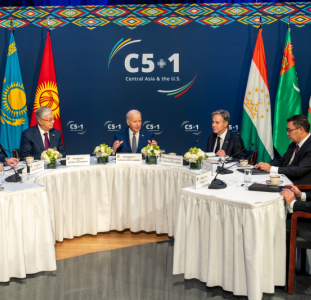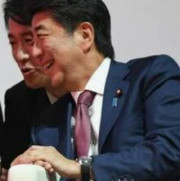Top stories from the Russian press on Tuesday, September 7th, prepared by TASS
Izvestia: Afghanistan struggles to form inclusive government
The Taliban (outlawed in Russia) captured the last stronghold of resistance in Panjshir and announced the end of the war in Afghanistan. Experts interviewed by Izvestia believe that the activities of the resistance are spilling over into partisan warfare - the complex geography of the region plays into the hands of the Panjshir people. At the same time, the unwillingness of the new authorities in Kabul to announce the new government indicates a split within the movement. According to experts, this protracted conflict further reduces the chances of the future Afghan cabinet of ministers having any genuine inclusiveness.
The Taliban pledged to create an inclusive Afghan government that would include all political and ethnic groups, as well as people from the previous regime, immediately after the seizure of power in Kabul in mid-August. But this never happened - experts think that the Taliban have not been able to agree on the formation among themselves.
This is a result of the struggle for power and spheres of influence, as well as for the right to be considered the main beneficiary of victory in the 20-year war with the United States, Head of the Center for the Study of Afghan Politics Andrey Serenko explained to Izvestia. The internal conflict, according to the expert, will be protracted, and no government will be formed until the situation is taken under control by Pakistan, which is considered to be the Taliban's curator.
"It is highly likely that the way out of the situation will be not so much in the distribution of posts within the government, as in the creation of a two-echelon system of power," Serenko added.
Meanwhile, as Russian Foreign Minister Sergei Lavrov said, only an inclusive government can ensure the country's sustainable transition to a new life. If the composition of this government really includes all ethnic groups of the country, then Russia would be ready to take part in the ceremony of its announcement, the minister noted.
Vedomosti: Destabilization in Guinea threatens aluminum shortage
Aluminum prices rose to their highest level since May 2011 amid a coup in Guinea that threatens bauxite exports from the country. The coup in Guinea has already been condemned by France and neighboring countries - members of the Economic Community of Western African CouStatesntries (ECOWAS). The Russian Foreign Ministry also spoke out against the unconstitutional change of power. Meanwhile, experts told Vedomosti, that the coup in Guinea poses significant risks to the Russian and global aluminum industry.
"A military coup always leads to instability and long-term risks of stopping production or exporting raw materials from Guinea. It is impossible to quickly find a replacement for such a volume of bauxite on a global scale," a representative of the Aluminum Association of Russia emphasized.
Russia’s Rusal owns a bauxite mining complex in Guinea. In total, according to the Rusal report for 2020, Guinea accounts for about 40% of the company's bauxite production. In the worst-case scenario for the aluminum industry, analyst for commodity markets at Otkritie Broker Oksana Lukicheva noted, there may be a change of owners at the bauxite deposits in Guinea. In this case, Rusal, may lose a large source of raw materials.
Independent industry expert Leonid Khazanov suggested that the rebels are unlikely to stop exporting bauxite and alumina, as this would lead to the collapse of the local economy. In theory, Australia could replace supplies from Guinea, but increasing production will take time, he added.
Kommersant: OPEC+ alliance not temporary, here for good — Lukoil CEO
Russian oil companies are preparing to ramp up production as OPEC+ members ease restrictions. Lukoil CEO Vagit Alekperov in an interview with Kommersant talked about the company’s upcoming plans. According to him, the alliance will always be around, while adapting its regulation to meet the global situation.
"As for the OPEC deal, today the parameters of the agreement have been determined until the end of 2022 and, I hope, will not change. I would not like to see oil prices above $100 per barrel again, as this can stimulate investment in low-profit, ineffective projects and then once again lead to what we have already gone through - the collapse of the market," he said.
"I think that the OPEC+ alliance was created not for a certain period of time, but for good. It is just that the regulation can be different depending on the situation. So far, September 2022 is the milestone when the restrictions should come to zero. Now the organization has stopped up to 90,000 barrels of production per day, we hope that they will be in demand on the market," Alekperov said.
According to him, the company has the potential for increasing production further, after the return of production to the pre-pandemic level. However, production plans for 2022 will depend on decisions within the framework of OPEC+.
Kommersant: Belarus activists face up to 11 years in prison after post-election protests
On September 6, a court in Minsk found opposition campaigners Maria Kolesnikova and Maksim Znak guilty of conspiracy to seize power and sentenced them to 11 and 10 years in prison. The verdict was passed quickly, and while the meeting itself was announced as open, it was in fact closed. The verdict confirmed the view that after last year's protests, President Alexander Lukashenko decides on which politicians will be allowed to be free in Belarus, Kommersant writes.
The trial was held behind closed doors. No diplomats from European countries or the US were able to get in. Lawyers and relatives of the accused had to sign nondisclosure agreements and were forbidden to comment on the case in any way. "The nondisclosure agreement itself is illegal. There was no reason to sign it," Kolesnikova's lawyer Vladimir Pylchenko told Kommersant.
The defendants' lawyers intend to appeal against the verdict in the Supreme Court in the near future. After the hearing, out of the famous and significant participants in last year's events in Belarus, only Sergey Tikhanovsky remains without a verdict.
Belarusian political analyst Artem Shraibman believes that Tikhanovsky will also be given a long term. He believes that the tough reaction fits into the logic of the authorities' actions throughout the entire post-protest year. "The authorities show that they consider the events of 2020 not just as a political protest, but as an armed coup attempt. And these are the leaders of the rebellion who are being tried," the analyst said.
At the same time, he continued, "Nobody expects them to serve all these terms. Either he will let them go, bargaining with the West, or they will be free after Lukashenko," Shraibman told the newspaper.
Vedomosti: Indian consortium may buy 9.9% in Arctic LNG-2 from Novatek
The Indian consortium of ONGC and Petronet LNG is considering the possibility of acquiring a 9.9% stake in the Arctic LNG-2 gas liquefaction project, a source in the delegation of Indian Petroleum and Natural Gas Minister Hardeep Singh Puri told Vedomosti. This issue was considered within the framework of his visit to Russia, the final decision has not yet been made, the source explained.
The minister himself told reporters that Indian companies had held talks with Rosneft, Novatek, Gazprom Neft, and Sibur, but did not disclose details.
The Arctic LNG-2 project, worth $21 bln, involves the construction of three technological lines for the production of liquefied natural gas (LNG) with a capacity of 6.6 mln tonnes per year each. The total capacity of the three lines will be 19.8 mln tonnes of LNG and up to 1.6 mln tonnes of stable gas condensate per year.
Research Director at Vygon Consulting Maria Belova noted that India is the fourth largest (after Japan, China, and South Korea) importer of LNG in the world, and the country annually consumes about 63 bln cubic meters of gas. According to Belova, this trend will not change, and by 2040 the volume of energy consumption in the country will grow by 3.3-3.5 times.
"For Novatek, this deal is an opportunity to gain a foothold in the new rapidly growing gas market, while it will allow India to find a reliable supplier and enter a promising project," the expert noted.









